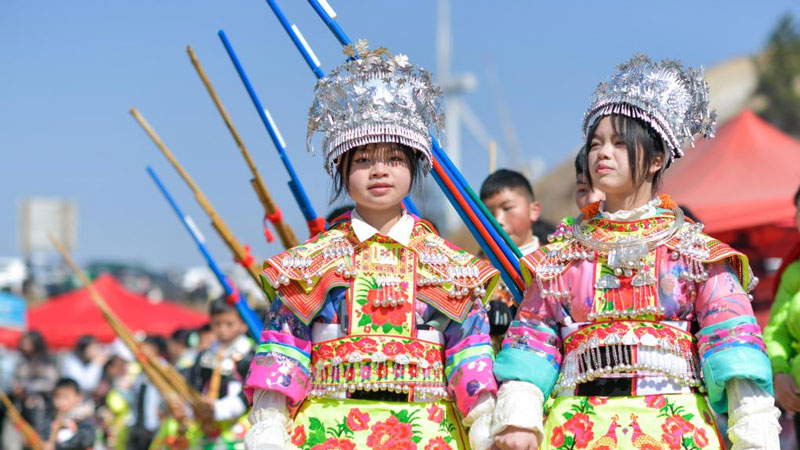China looking to ride Web 3.0 wave
BEIJING, Jan. 30 (Xinhua) -- Last October, renowned Hong Kong director and comedian Stephen Chow said in his first social media post that he is "seeking outstanding Web3 talent in the dark."
While many fans still need to become more familiar with Web3 or Web 3.0, the word has been trendy in the tech community these years. Chinese policymakers and tech enterprises are also ramping up efforts to ride the wave.
Gu Feiyong, a manager from China's internet giant NetEase, said that Web3 will rewire how the internet works, using blockchain to change how information is stored, shared, and owned.
In the early 1990s, the first version of the internet is referred to as Web 1.0. It was made up of static web pages with content used to display information.
Then, Web 2.0 saw the rise of e-commerce and social media platforms. Technologies like mobile computing (smartphones), cloud computing, and big data enabled internet users to interact with each other and publish their own content.
However, there have been increasing concerns about Web 2.0 in recent years. For instance, the users have to surrender their data to platforms run by tech giants which collect information about preferences to sell targeted advertisements. Users do not have a say in the share of revenue brought by the content they create.
Based on blockchain, Web 3.0 aims to solve these issues and return content rights to the creators, according to Gu.
Many big tech firms and start-ups are using business ideas to demonstrate Web 3.0 in real-world applications, believing in the promising future it can deliver. Metaverse, for instance, is a virtual environment that allows people to engage in digital activities such as collecting digital assets like NFTs.
Among the top 10 tech trends predicted by Baidu Research, Web 3.0-related technologies will create a new multi-centered, more open, fair, and secure web space where users can exchange information and value with more safety in the year 2023.
Policymakers are rolling out measures and plan to support the development. Last July, Shanghai said in its 14th five-year plan on the digital economy that the city plans to promote the deployment of Web 3.0 infrastructure, technology research and development for the new-generation network, and application innovation.
Earlier this month, Beijing rolled out a plan for Web 3.0 development from 2023 to 2025 in Shijingshan District, hoping to achieve a revenue of more than 10 billion yuan (about 1.48 billion U.S. dollars) from Web 3.0-related business by 2025.
Beijing plans to have 20 major application demonstration projects in the district by 2025, build five labs or tech innovation centers, and at least six tech and service platforms, and attract five to 10 industry-leading Web 3.0 enterprises to run in the district.
Photos
Related Stories
- India establishes 3 Grievance Appellate Committees to ensure accountability of internet platforms
- China's internet sector R&D spending logs robust growth in Jan.-Oct.
- UN forum calls for concerted efforts for safe, sustainable, inclusive digital future
- Light of Internet Expo held at 2022 World Internet Conference Wuzhen Summit
- Conference Builds Global Connections
Copyright © 2023 People's Daily Online. All Rights Reserved.









